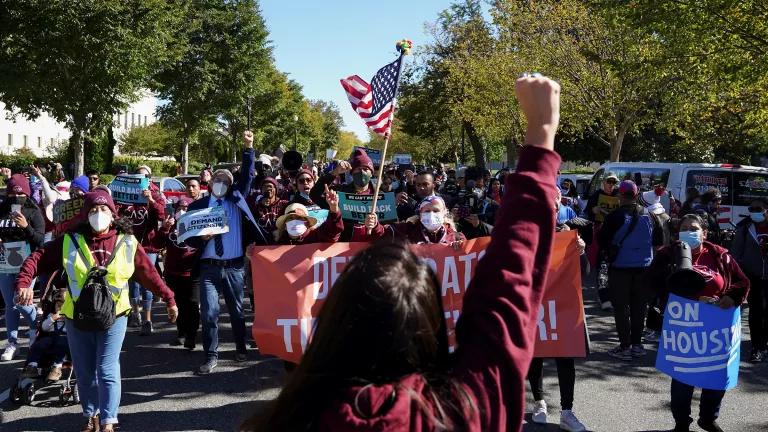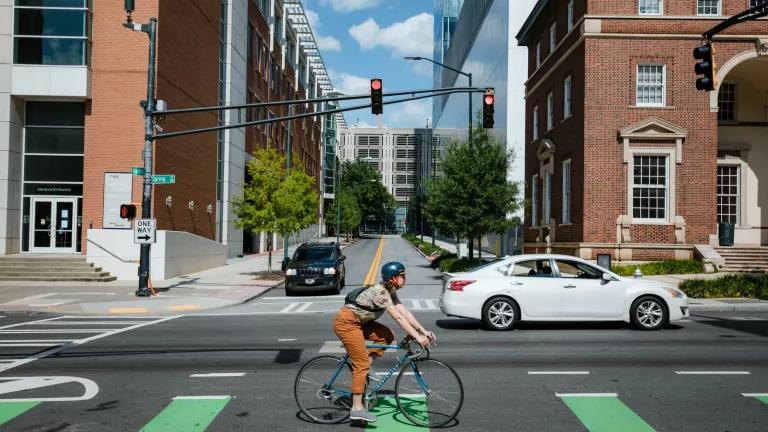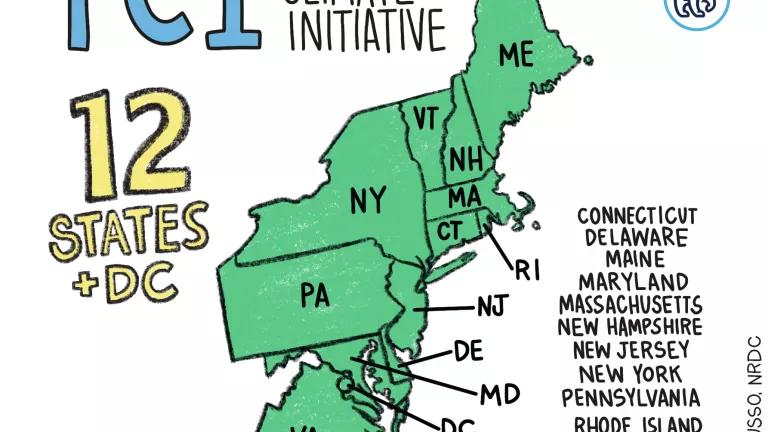St. Petersburg Wins Climate Challenge; 5 More Cities to Join
Bloomberg Philanthropies and the Natural Resources Defense Council today announced St. Petersburg as the 20th winning city in the Bloomberg American Cities Climate Challenge (ACCC), a $70 million dollar program designed to accelerate ambitious U.S. cities’ efforts to tackle climate change and promote a sustainable future for their residents.
Bloomberg Philanthropies also announced today it will be expanding the challenge beyond its original goal of working with 20 U.S. cities to include an additional five, which will be named later this year.
Cities and their surrounding areas play a pivotal role in climate action. Combined, they account for more than 70% of global greenhouse gas emissions and two-thirds of the world’s energy use. But together, they also have the power to help America keep the promise of the Paris climate agreement—despite the Trump administration’s regressive decision to withdraw from the agreement. That’s why the Bloomberg challenge is helping winners address the two main pollution-causing sectors in the majority of cities—buildings and transportation.
Doing so will have direct benefits for residents’ lives. After all, cities not only contribute to climate change—the people who live there also bear the brunt of its effects, from heat waves to increasingly frequent flood events.
And taking action is more important than ever. Two major reports released last year from leading world experts warn that we could see the worst impacts of climate change much sooner than expected if we don’t act swiftly and boldly.
NRDC is proud to join with Bloomberg Philanthropies, Delivery Associates, as well as several other partners to support St. Petersburg and other winning cities’ efforts by providing the resources and technical support cities need to pursue high-impact emissions reductions programs and policies.
St. Petersburg’s selection signifies that its city leaders understand and have the will to solve the city’s biggest environment challenges. With a growing population and surrounded on three sides by water, St. Petersburg has been ranked the seventh most vulnerable region worldwide for sea level rise. St. Petersburg and Mayor Kriseman are committed to the city’s role in mitigating contributions to climate change, joining the ranks of other winning cities taking action to build a better future for generations yet to come.
This challenge will help St. Petersburg work towards a number of ambitious goals to reduce greenhouse gas emissions, including:
Reducing Energy Usage in Buildings - The city plans to upgrade its municipal facilities by conducting deep energy efficiency retrofits and retrocommissioning. In doing so, the city intends to achieve cut emissions equivalent to those from nearly 1,500 passenger vehicles in a year. St. Petersburg additionally aims to meet municipal electricity demand with renewable energy by completing solar projects and utilizing county biosolids.
The city also plans to engage commercial and residential buildings in a private sector challenge program that will encourage them to set energy reduction targets through best practice sharing and technical assistance.
Increasing Solar Power in the Sunshine State - Through the challenge, St. Petersburg aims to scale and expand its existing residential co-op program, scale and expand the Solar and Energy Loan Fund (SELF) non-profit financing model, and implement Duke Energy Florida’s first community solar project to benefit low-moderate income areas.
Expanding Electric Vehicles - St. Petersburg will deploy an extensive electric vehicle education and incentive program, which will reach private consumers, city employees and large employers in the area, with a goal of increasing electric vehicle sales by 10 percent in the St. Petersburg area.
Providing More Low-Carbon Transportation Options - The city will create new and expanded “Bus Rapid Transit” corridors that will improve mobility and increase ridership on some of the most used routes. The city will also implement “Complete Streets” that will upgrade existing trails and routes to a fully connected, low-stress bicycle network.
In light of federal inaction, these cities are taking up the mantle of leadership and working to ensure our children are left with a stronger, cleaner and safer future. Their ambition and determination have never been more important, and together, they are leading the way forward for generations to come.



